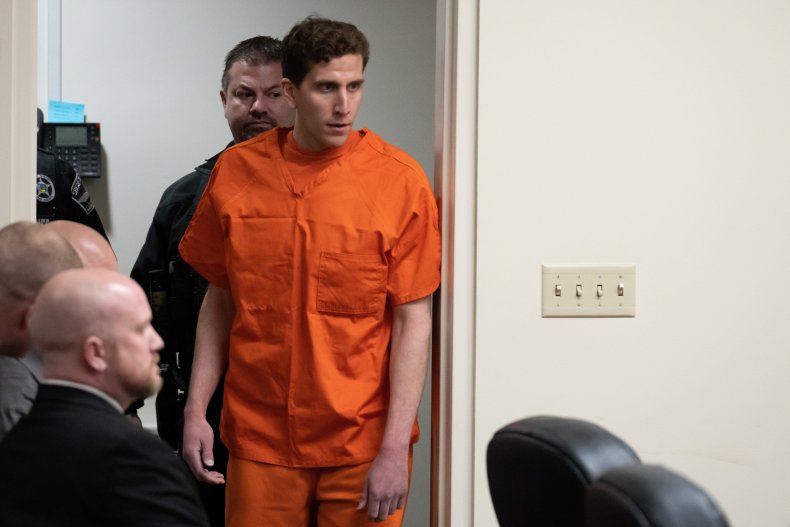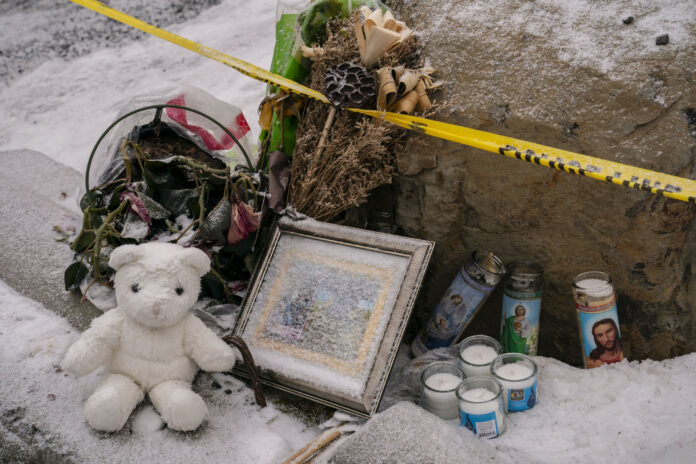The quiet college town of Moscow, Idaho, is buckling under the financial pressures of funding the investigation into the killings of four students in November last year.
The city, which brings in $6.9 million in property taxes each year, was already spending $7.2 million on its police force, Moscow officials told ABC News—even before the department had to handle the quadruple murder case. But the bills skyrocketed as the investigation ramped up, with increased patrols on the streets, working hours extended with overtime, and various expenses, such as forensic tests, adding up.
The victims—Kaylee Goncalves, 21, Madison Mogen, 21, Xana Kernodle, 20, and Ethan Chapin, 20—were all stabbed to death in the early hours at a shared student house on November 13. The crime rocked the country and made headlines in the U.S. and around the world as the hunt to find the killer got underway. The investigation rolled on for weeks, sparking frustration from the victims’ families. On December 30, a suspect was finally taken into custody.
Criminology PhD student Bryan Kohberger, 28, who studied at nearby Washington State University was arrested at his parents’ home in Albrightsville, Pennsylvania. A former lawyer who represented Kohberger said at the time that his client was “eager to be exonerated.” Last week, a grand jury indicted him on four counts of first-degree murder and one count of felony burglary. He is due to enter a plea on Monday.
David Ryder/Getty Images
Moscow Mayor Art Bettge told ABC News: “It was a tragic and horrible event that no one saw coming. [It has been] a difficult six months.” Aside from the human cost of the tragedy, there have been other unexpected consequences too.
“Moscow is not awash in a funding excess,” the mayor told the news channel. “We run a very, very lean budget and the impact of the investigation has been felt on the budget […] We’re just trying to tread fiscal water to avoid going under.” The situation “stops future investment in certain aspects of the city that clearly need to be done,” Bettge said, adding: “For us, this is unknown territory. We’ve never gone through this before. We’re feeling our way along as best we can to try to accommodate all of the needs—the competing needs: maintaining the city for our citizens—and seeing that justice is done.”
Just three weeks into the investigation, Mayor Bettge sent a letter to Idaho Governor Brad Little requesting financial help. The city’s police department expected to incur “nearly $200,000 over the coming weeks as we face additional overtime, private security, data storage, and communications assistance costs,” he wrote. Little agreed to reimburse around $93,000. But that still leaves a significant shortfall.
And it may grow larger yet; Moscow Police Department’s Captain Anthony Dahlinger told ABC News: “The true financial impact of the homicide investigation will not be known for quite some time as the case is still in process.” Police overtime bills were particularly high because the force is currently short-staffed, and is currently working with 27 officers instead of the 36 it should have. Moscow’s police receive the largest share of funding from the city budget, with more than a third of the pot allocated to the department. But the cost of the massive investigation has pushed up spending exponentially and depleted the city’s coffers.

Ted S. Warren/Getty Images
Taxes were already due to be hiked in the city by 3 percent, even before the murders, and the financial situation has become more dire since then. During an interview with the broadcaster, Moscow City Council member Sandra Kelly noted: “We weren’t prepared for this. This is such a horrific thing—how could you plan for this?
“You budget for fires. You budget for floods. You prepare for natural disasters. This was not natural. The cost is astronomical. And of course, you can’t skimp on keeping people safe. Yet, this is just not something you budget for—because it’s something you’d never dream could happen.”
And it was not just the city’s administration that suffered financially; local businesses say they have been hit hard too.
Mitchell Lopez, co-owner of La Casa Lopez, a Mexican restaurant on Main Street, said he had been left heartbroken by the murders, and said the local students made up many of his customers and staff. But he added: “This town emptied out so quickly, nobody would go out—they were scared. We’ve always been a very safe haven and this really caused a major financial burden on every business in the area.”
Newsweek has emailed Mayor Bettge and the Moscow Police Department for further information and comment.


